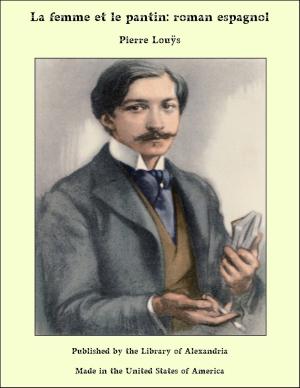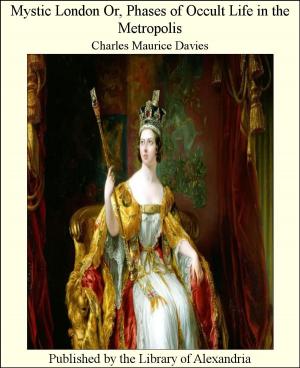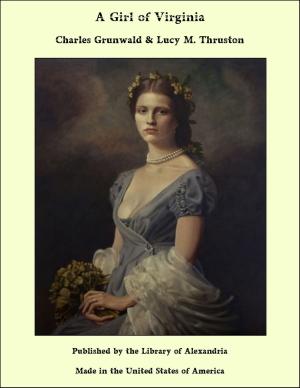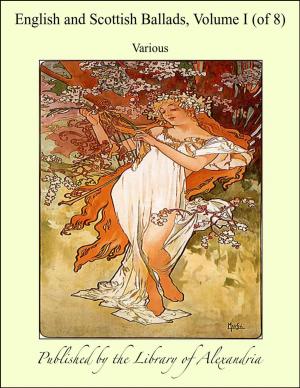| Author: | Ernest William Hornung | ISBN: | 9781465518842 |
| Publisher: | Library of Alexandria | Publication: | March 8, 2015 |
| Imprint: | Language: | English |
| Author: | Ernest William Hornung |
| ISBN: | 9781465518842 |
| Publisher: | Library of Alexandria |
| Publication: | March 8, 2015 |
| Imprint: | |
| Language: | English |
A LETTER FROM ALFRED There was consternation in the domestic camp of Mr Justice Bligh on the banks of the Thames. It was a Sunday morning in early summer. Three-fourths of the family sat in ominous silence before the mockery of a well-spread breakfast-table: Sir James and Lady Bligh and their second son, Granville. The eldest son—the missing complement of this family of four—was abroad. For many months back, and, in fact, down to this very minute, it had been pretty confidently believed that the young man was somewhere in the wilds of Australia; no one had quite known where, for the young man, like most vagabond young men, was a terribly meagre corespondent; nor had it ever been clear why any one with leisure and money, and of no very romantic turn, should have left the beaten track of globe-trotters, penetrated to the wilderness, and stayed there—as Alfred Bligh had done. Now, however, all was plain. A letter from Brindisi, just received, explained everything; Alfred’s movements, so long obscure, were at last revealed, and in a lurid light—that, as it were, of the bombshell that had fallen and burst upon the Judge’s breakfast-table. For Alfred was on his way to England with an Australian wife; and this letter from Brindisi, was the first that his people had heard of it, or of her. ‘Of course,’ said Lady Bligh, in her calm and thoughtful manner, ‘it was bound to happen sooner or later. It might have happened very much sooner; and, indeed, I often wished that it would; for Alfred must be—what? Thirty?’ ‘Quite,’ said Granville; ‘I am nearly that myself.’ ‘Well, then,’ said Lady Bligh gently, looking tenderly at the Judge (whose grave eyes rested upon the sunlit lawn outside), ‘from one point of view—a selfish one—we ought to consider ourselves the most fortunate of parents. And this news should be a matter for rejoicing, as it would be, if—if it were only less sudden, and wild, and—and
A LETTER FROM ALFRED There was consternation in the domestic camp of Mr Justice Bligh on the banks of the Thames. It was a Sunday morning in early summer. Three-fourths of the family sat in ominous silence before the mockery of a well-spread breakfast-table: Sir James and Lady Bligh and their second son, Granville. The eldest son—the missing complement of this family of four—was abroad. For many months back, and, in fact, down to this very minute, it had been pretty confidently believed that the young man was somewhere in the wilds of Australia; no one had quite known where, for the young man, like most vagabond young men, was a terribly meagre corespondent; nor had it ever been clear why any one with leisure and money, and of no very romantic turn, should have left the beaten track of globe-trotters, penetrated to the wilderness, and stayed there—as Alfred Bligh had done. Now, however, all was plain. A letter from Brindisi, just received, explained everything; Alfred’s movements, so long obscure, were at last revealed, and in a lurid light—that, as it were, of the bombshell that had fallen and burst upon the Judge’s breakfast-table. For Alfred was on his way to England with an Australian wife; and this letter from Brindisi, was the first that his people had heard of it, or of her. ‘Of course,’ said Lady Bligh, in her calm and thoughtful manner, ‘it was bound to happen sooner or later. It might have happened very much sooner; and, indeed, I often wished that it would; for Alfred must be—what? Thirty?’ ‘Quite,’ said Granville; ‘I am nearly that myself.’ ‘Well, then,’ said Lady Bligh gently, looking tenderly at the Judge (whose grave eyes rested upon the sunlit lawn outside), ‘from one point of view—a selfish one—we ought to consider ourselves the most fortunate of parents. And this news should be a matter for rejoicing, as it would be, if—if it were only less sudden, and wild, and—and















